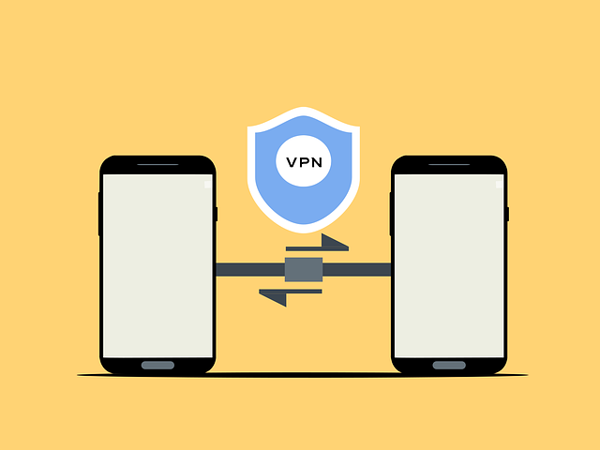In today’s digital age, the importance of online privacy and security cannot be overstated. With cyber threats lurking around every corner and an increasing amount of personal data being shared online, many users turn to Virtual Private Networks (VPNs) to protect themselves. However, while VPNs offer numerous advantages, they also come with certain drawbacks. This blog post explores the pros and cons of using a VPN, providing examples and step-by-step solutions to help you make an informed decision.
What is a VPN?
A Virtual Private Network (VPN) is a service that encrypts your internet connection and hides your IP address. This allows you to browse the internet privately and securely, making it difficult for hackers, advertisers, and even government agencies to track your online activities.
Pros of Using a VPN
- Enhanced Security
One of the primary advantages of using a VPN is the increased security it offers. When connected to a VPN, your data is encrypted, making it nearly impossible for cybercriminals to intercept your information. This is particularly important when using public Wi-Fi networks, which are often less secure.
- Example: Imagine you're at a coffee shop and want to access your bank account. Without a VPN, someone could easily intercept your data. However, using a VPN encrypts your connection, protecting your sensitive information.
- Privacy Protection
VPNs mask your IP address, providing anonymity while you browse. This makes it harder for websites and advertisers to track your online behavior, enhancing your privacy.
- Example: By using a VPN, your online activities remain hidden from your Internet Service Provider (ISP), meaning they cannot sell your browsing history to third parties.
- Access to Geo-Restricted Content
Many streaming services and websites restrict access based on geographical locations. A VPN allows you to bypass these restrictions by connecting to servers in different countries.
- Example: If you want to access Netflix content available in the UK, you can connect to a UK server using a VPN and enjoy the content as if you were physically located there.
- Secure Remote Access
VPNs are essential for businesses that allow employees to work remotely. A VPN provides a secure connection to the company’s internal network, ensuring that sensitive company data is protected.
- Example: A remote employee accessing confidential company files can do so securely through a VPN, safeguarding the data from potential breaches.
- Prevent Bandwidth Throttling
Some ISPs throttle bandwidth for certain activities like streaming or gaming. By using a VPN, you can prevent ISPs from seeing what you're doing online, potentially improving your internet speed.
- Example: A gamer experiencing lag may find that connecting through a VPN improves their gaming performance by bypassing ISP throttling.
Cons of Using a VPN
- Reduced Internet Speed
While VPNs enhance security, they can also slow down your internet connection. This is because your data is encrypted and routed through a remote server, which can lead to latency.
- Example: If you’re using a VPN to stream movies, you might experience buffering or lower quality if the VPN server is overloaded or far from your location.
- Cost
Most reliable VPN services come with a subscription fee. While free VPNs exist, they often come with limitations and potential security risks.
- Example: Premium VPN services can range from $5 to $15 per month, which might be a deterrent for some users, especially if they are not fully aware of the benefits.
- Limited Device Compatibility
Not all devices support VPN connections. While most laptops and smartphones can easily connect to a VPN, some smart TVs, game consoles, and other devices may not have built-in support.
- Example: If you want to use a VPN on a smart TV, you might need to set it up on your router instead of the TV itself, adding complexity to the process.
- Legal Implications
In some countries, using a VPN may be illegal or heavily regulated. It’s essential to understand the laws in your jurisdiction before using a VPN.
- Example: Countries like China and Russia have strict laws regarding VPN usage, and using one could lead to fines or legal trouble.
- Trust Issues with VPN Providers
Not all VPN providers are created equal. Some may log your data or sell it to third parties, which defeats the purpose of using a VPN for privacy.
- Example: Choosing a reputable VPN service is crucial. Researching providers’ privacy policies can help ensure that your data is not being misused.
Step-by-Step Guide to Using a VPN
If you decide that the benefits of a VPN outweigh the disadvantages, here’s a simple guide to getting started:
Choose a Reliable VPN Service: Research and select a VPN provider that suits your needs. Look for features like strong encryption, a no-logs policy, and a wide range of server locations.
Download and Install the VPN App: Most VPN providers offer applications for various devices. Download and install the app on your device.
Sign Up for an Account: Create an account with the VPN provider and select a subscription plan.
Connect to a Server: Open the VPN app and choose a server location. Depending on your needs, select a server close to your physical location for better speed or a server in another country to access geo-restricted content.
Start Browsing Securely: Once connected, you can browse the internet securely, knowing that your data is encrypted and your IP address is hidden.
Conclusion
Using a VPN offers significant advantages in terms of security, privacy, and access to restricted content. However, it is essential to consider the potential drawbacks, such as reduced speed, cost, and legal implications. By weighing the pros and cons, you can make an informed decision about whether a VPN is the right choice for you.

.jpg)







